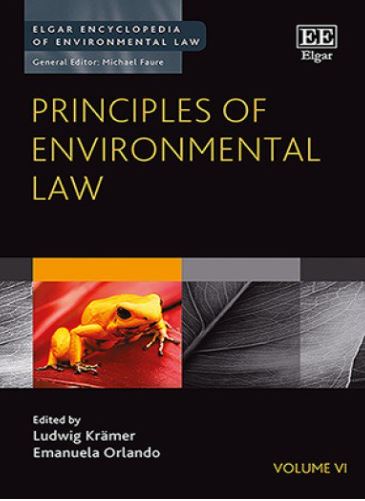
With a considerable influence on national and international legislators, courts, public administrators and private companies, environmental principles - such as the polluter-pays principle, sustainable development or the precautionary principle - play an important role in the making, application and the interpretation of environmental law.
As a key part of the Elgar Encyclopedia of Environmental Law, this comprehensive volume provides detailed coverage of all of the important environmental principles and offers unique insights as well as wider reflection on the role played by principles. With 50 structured entries written by leading scholars from around the world the volume discusses the various environmental principles in turn, covering their impact on international cooperation, their varying importance globally, their relevance in the jurisprudence of international and European courts and their growing importance in international business practice.
As well as forming an authoritative reference source, Principles of Environmental Law offers new insights into this topic, which has developed strongly over the last 50 years and has become increasingly fundamental for the future of the planet. As well as forming an indispensable guide, this important volume offers both a reflection on the evolution of the legal principles and insight into their practical application. It will prove an essential resource for students, academics, judges, company lawyers, and administrators.